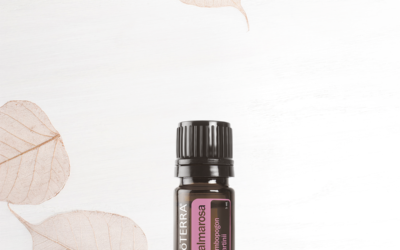Yup I’m tackling a big hairy subject here and no doubt there will be some backlash experienced but hey….. we all have the freedom to express our opinions and share information. What you do with what I share is your responsibility.
There are a lot of different opinions out there about the internal use of essential oils and it can seem a little overwhelming and controversial at times.
One of the reasons why doTerra’s oils are so unique, is their purity allows for them to be used internally which is a powerful way to deliver the oils to every cell in our body that requires support. Remember that EO’s are cell selective, they don’t try and get to every single cell in our body but rather- every single cell that needs help. This is contrary to popular belief that essential oils can be found in ‘every’ cell in the body within 20 minutes from the time it was applied.
There is no way that you would ever consider this method of use with your ordinary over the counter brand from your local health food store. Remember, you have no guarantee that there are no synthetic, chemical derived additives or fillers in those products. You could do yourself some serious damage.
Synthetic essential oils are not recognised by our bodies in the same way that pure unadulterated essential oils are. Isolating single compounds from plants removes safety checks and balances innately developed in the plant.
If we think about Aspirin in this context, we have an isolated compound (Methyl Salicylate) taken from Wintergreen or Birch which has been synthetically manufactured and replicated in a lab. The result is a product that yes, delivers relief but now without those inbuilt safety checks that the plant designed in order for her medicine to be used without harm or side effects as we know them.

When naturally occurring compounds are left whole, a synergistic and therapeutically enhancing effect is produced as each of these unique compounds acts upon a different receptor target involved in health and human disease. While seemingly inactive compounds in the plant may exert little or no direct activity on the root cause of disease, they assist the active compounds in a synergistic, additive, modifying, or antagonistic manner.
These seemingly inactive compounds actually enhance bio-activity, stimulate natural and adaptive defense mechanisms, reverse resistance, modulate adverse effects, or decrease metabolism and excretion. Therefore utilising the chemistry of the entire plant is essential to achieving the desired outcomes safely for our wellbeing.
Essential oils are utilized extensively throughout the food industry as safe flavoring agents and natural preservatives and have been done so for years. The U.S. Food and Drug Administration (FDA) records 160 essential oils, oleoresins and distillates considered safe for addition to food for human consumption on the Generally Recognized as Safe list (GRAS.
You are already ingesting essential oils potentially everyday, you just don’t know it! Adore your Pana Chocolate? They use doTerra in their chocolate….. surprise!
There are many off the shelf pharmaceuticals such as Mintec and Buscopan that incorporate the use of Peppermint essential oil as it’s active ingredient as an example. If you use a mouthwash you are possibly ingesting Spearmint, Peppermint, Cinnamon or Clove essential oils. Essential oil containing mouthwashes have been safely used for decades. Studies which used essential oil mouth rinses for up to 6 months concluded that they were safe to use orally with no adverse events.
Essential oils are already a normal part of our diet and the human body is well equipped to safely metabolize them. There are many studies which demonstrate that essential oils actually have a profound protective quality on the mucosal membranes lining our gastrointestinal tract contrary to what others might have you believe.
For example, several different essential oils have been shown to increase digestive tract mucus production. In the digestive tract, increased mucus production is a good thing, leading to increased protection for underlying mucous membrane cells. Some essential oils have the ability to regulate production of mucin at a genetic level which is just so awesome for a myriad of different respiratory related illnesses.
This leads me to another factor that needs to be considered with internal use of essential oils and that is the impact on our gut micro-biome.
As Robert Tisserand states-
“We do know that enterically-coated capsules of peppermint oil are beneficial in cases of irritable bowel disease and that these capsules result in a (substantial) peak serum concentration of 1,492 ng/mL for menthol. We also know from this report that peppermint essential oil had a beneficial effect on the balance of gut bacteria in a case of SIBO (small intestine bacterial overgrowth).
It would be useful to know more about particular oils, doses, routes of administration and their effect on the body’s microbiome. But in the meantime, it is rash to assume that essential oils negatively affect the balance of bowel flora, because there is no clinical evidence that this happens. On the other hand, decades of clinical experience by doctors in France suggests that essential oils frequently heal both acute and chronic infections without the damaging, and often long-lasting effect on bowel flora that comes from the use of antibiotics.
Another method of oral ingestion is Sublingual Application or taking a drop of essential oil under your tongue”.
There aren’t any trials that have been conducted on humans (as yet) so most of the research available on this topic stems from In vitro or animal studies. What has been done to date though is fascinating and so far indicates little detrimental impact on beneficial bacteria colonies.
For example, a rodent study demonstrated that an essential oil inhibited inflammatory mediators from microbial byproducts and spared gastric mucosa at the same time.
In another study with rabbits, it was demonstrated that thyme oil increased antioxidant status and decreased oxidative harm on the small intestine. It also positively influenced intestinal integrity, aka preventing “leaky gut.”
This study looked into the Effect of Essential Oils on Pathogenic Bacteria and found essential oils are friend not foe to our helpful bacterial colonies just the same as this one did on Oregano’s Ability To Improve Intestinal Morphology
Yes there is nothing concrete to say definitively that essential oils do not harm our friendly gut bacteria however so far, all the signs are positive and indicate that essential oils may very well be selective in the bacteria they impact. Very cool.
When essential oils are ingested, they don’t just sit in the stomach. Essential oils are lipophilic (fat loving) substances, and bind to mucin which is also a fat based substance. After binding to mucin, they will travel through the digestive tract until they are absorbed into the blood stream.
You will often hear the recommendation of ingesting essential oils alongside good quality fats such as olive or coconut oil and it’s for exactly this reason. By incorporating a fat, an essential oil is more bio-available to our body and is carried more effectively through our system to where it needs to go. Fats are EO super transporters.
A gentle and safe way of ingesting an essential oil is in a spoonful of coconut or macadamia oil. You could also put a couple of drops of essential oil inside an empty veggie capsule, top the rest up with olive oil and take it as you would a pill. This is particularly crucial for using hot oils like oregano, cinnamon, black pepper and clove. All are excellent immune boosting and cardiovascular supporting oils but can irritate our skin and create sensitivity when used neat.
See the really interesting thing is that the absorption rate in the buccal cavity mucosa (the membrane in our mouth) is considered more than 9 times greater than that of the gastrointestinal system and up to 4,000 times more permeable than the skin making it a super efficient super highway delivery method for essential oils.

This suggests that a significant amount of essential oils rapidly enters the bloodstream when introduced into the oral cavity making it a highly efficient method of use where moderation is key.
Sublingual Application is believed to bypass specific metabolic pathways where essential oils can be broken down potentially before completing their mission. An essential oil such as Grapefruit may be best used sublingually to take full advantage of it’s high d-limonene make up with this method because it’s taken straight into the blood stream and bypasses the liver where the d-limonene is then broken down and metabolized.
Oils that are rich in Sesquiterpenes (Think thick, sticky oils such as Frankincense, Ginger, Vetiver, Patchouli, Cobaiba, Sandalwood) which nourish the central nervous system and provide excellent support to our brains can be most effective when taken in our oral cavity either by placing a drop beneath our tongue, pressing a drop against the roof of our mouth or swishing them around our mouth with either an oil such as coconut (oil pulling method) or a shot of water.
Oils such as doTerra’s which uphold a level of integrity and purity not before seen in the world of Aromatherapy are welcomed in to our bodies, assimilated quickly and are carried away immediately to the specific locations and cells where support is required.
It’s important to remember that a lot of the fear mongering and stories of problems occurring with ingesting oils arise from-
1) Misuse of the oils and not respecting their potency
2) Ingesting essential oils that are not pure at all.
The number one rule with essential oil use in general is to treat them with respect. Their potency demands it.
‘The dose makes the poison’ is an adage intended to indicate a basic principle of toxicology. Anything can be toxic to the human body when consumed in inappropriate amounts be it chocolate cake, nuts or sugar.
A little goes a very long way when we are dealing with a concentrated plant extract and the catch phrase of ‘less, more frequently’ is sound advice to apply to every oil you use. As long as we keep this in mind, internal use is a highly effective delivery system for the oils but it’s got to be something you are comfortable with.
There are some essential oils that we can use more frequently though through internal use and those are oils that are rich in Monoterpenes. All Citrus oils are rich in Monoterpenes and are rapidly metabolised by the body in under an hour which means that we can enjoy them more frequently without overburdening our body.
Enjoying a citrus oil in our water bottle throughout the day is perfect and will provide us with day long therapeutic benefits. Oils that are heavy in Sesquiterpenes for example though should be used infrequently throughout the day as they move far slower through our body providing sustained longer lasting support.
Always feel free to reference doTerra’s Recommended Daily Amounts Guidelines below-

There are many essential oils that are perfectly happy in our water bottles such as all the citruses, mints and doTerra’s DigestZen, Smart n Sassy or Zendocrine Blends. We must avoid using hot oils such as Cinnamon, Clove, Thyme or Oregano in this way though as they really do need a fat to avoid irritating the membranes of the mouth and esophageal tract.
Twenty two of doTerra’s oil range can be ingested, these will tend to originate from your herbs and spices as well as resins like Frankincense and Myrrh.
There are absolutely some essential oils that aren’t to be used internally and these are Arborvitae, Birch, Cedarwood, Cypress, Eucalyptus, White Fir and Wintergreen. Not because their purity isn’t up to scratch, simply because their chemical makeup and properties are not safe to be ingested. To give you an example, Camphor is the natural, plant derived active ingredient in mothballs. You wouldn’t go eating mothballs now would you!
Always refer to your Modern Essentials Book or The Essential Life for recommendations on which oils are recommended for internal use and start slowly.
One thing’s for sure, you MUST try cooking with them!
My goodness they create such a mouth orgasm. Ever thought that Lime, Black Pepper and Cinnamon would work together in chocolate? Well they bloody well do and I implore you to look up Vanessa Jeans recipe for it.
When you’re using oils from herbs and spices in your food, sometimes you want LESS than 1 drop. They pack a punch guys and one full drop can often be too much flavour wise. Try using a toothpick to dip in the oil and then swirl through your batter/ chocolate etc. That’s the best way to control the intensity of the flavour.
Have some fun getting creative in the kitchen!
And when all is said and done and you’ve read this and still don’t feel comfortable ingesting essential oils…don’t!
Nobody is forcing you too and it is completely up the individual. This blog is simply about the possibilities we have when using an essential oil the quality of what doTerra offer. It’s an option you wouldn’t consider unless you were confident with your chosen brand of oils. I am, therefore I am comfortable with using my essential oils in this way.
If it doesn’t resonate with you, feel free to stick with using the oils aromatically and topically because there is an absolute wealth of healthy benefits to receive from these methods of use.





0 Comments